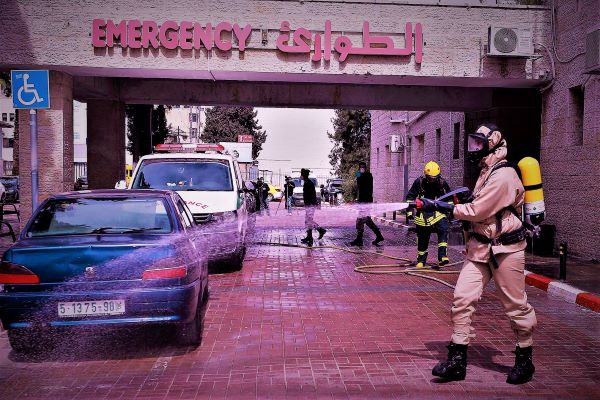The Palestinian Authority’s outrageous corruption was laid bare in a recent exposé about hundreds of millions of dollars of UK taxpayer money squandered by Mahmoud Abbas’ regime.
By United with Israel Staff
A special report this week by the UK’s Jewish Chronicle (JC) exposed a facet of corruption the Palestinian Authority has managed largely to conceal from the West.
The report focuses on “two ghost hospitals,” which were built using over $220 million (£200 million) of British taxpayer money.
One of the hospitals is named after the PA’s leader Mahmoud Abbas, who has refused to hold elections since the last round were held in 2005. The Abbas hospital was described as a state-of-the-art medical facility constructed of stone and glass. The hospital is missing two key elements, however, sitting nearly empty with “almost no doctors or patients.”
“The two-year-old Mahmoud Abbas general hospital in Halhul, near Hebron, lies deserted, due to incompetence and corruption,” reported the JC.
The other “ghost hospital” is “a 50-acre hole in the ground” where “millions have been wasted.”
Show Us the Money
After detailing the hundreds of millions of pounds expended on these projects, the JC attempted to figure out what happened to the money.
To that end, the report details a variety of questionable, at best, developments, from directing patients to a pre-existing private hospital that generates significant revenue for PA cronies to stashing millions of pounds in multiple banks.
What is even more troubling than the financial malfeasance is the fact that real medical facilities, not “ghost hospitals,” are desperately needed by Arabs whose healthcare is entrusted to the Palestinian Authority.
According to a whistleblower named Dr. Haitham al-Hidri quoted by the JC, “[The Abbas] public hospital is beautifully equipped and is barely being used. This is because of the number of referrals to private hospitals. They are much more expensive, but can make their owners rich.”
Another expert on Palestinian corruption quoted by the JC, Jehad Harb, explained, “People get treatment because of their social and political connections, and through bribery. We need to have a system that doesn’t have that.”
